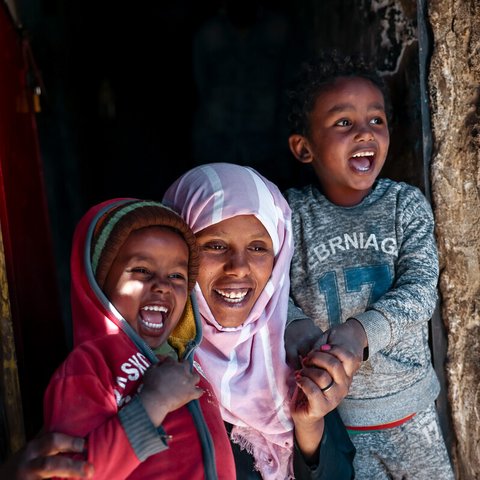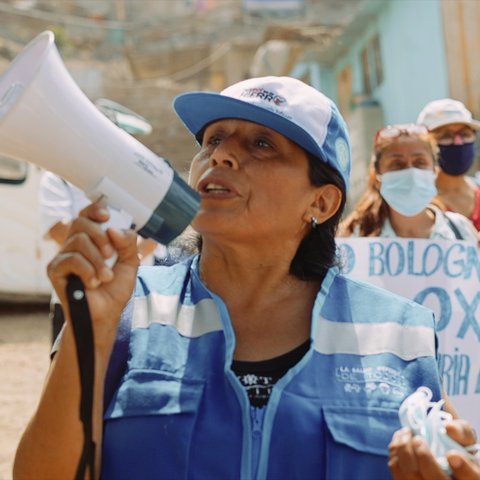- What is inequality?
- What is poverty?
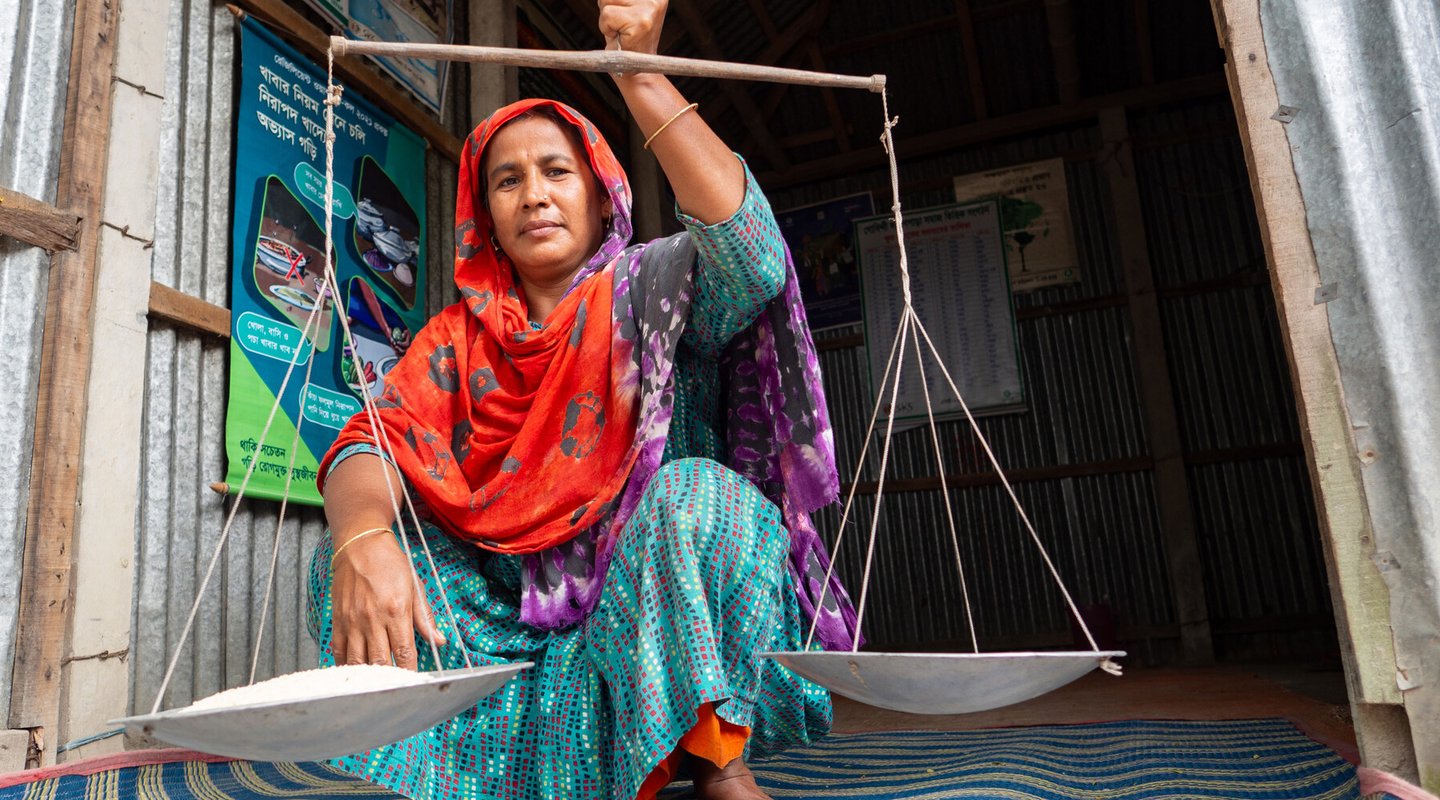
Shafil is president of her local food bank in Gaibandha, Bangladesh. Each time they cook, members set aside a handful of rice for the bank, and users can take what they need. Oxfam partner SKS supports the food bank. Photo credit: Elizabeth Stevens/Oxfam
Shafil is president of her local food bank in Gaibandha, Bangladesh. Each time they cook, members set aside a handful of rice for the bank, and users can take what they need. Oxfam partner SKS supports the food bank. Photo credit: Elizabeth Stevens/Oxfam
What is inequality?
What is the meaning of inequality? How does inequality push people into poverty, and what can we do to change it?
What is the definition of inequality?
How is inequality measured?
What are some different types of inequality?
Patience is a nurse at the Korle Bu Teaching Hospital in Ghana. She considers changing careers, as she can barely cater for her dependents on her monthly salary. Credit: Ernest Ankomah/Oxfam
I can’t really cope. [...] Now I live at the expense of people’s help. I’m worse off; looking at my pay, transportation, looking at my dependents and children, I live by grace. I live by the help of people.”
Patience, a nurse at the Korle Bu Teaching Hospital in Ghana.
Patience is considering changing careers, as she can barely cater for her dependents on her monthly salary.
This is the small lunchtime meal of Sagori Bauru, who lives in Moulvibazar in Bangladesh and gathers tea for her job. Credit: Fabeha Monir/Oxfam
We are facing a crisis for money and food. How can I pay electricity bills and loan instalments?”
Sagori Bauru, from Moulvibazar in Bangladesh, who gathers tea for her job.
This is Sagori's small lunchtime meal. Her husband died and she now supports her children alone, and her limited income of around £1.20 a day means they can’t eat a full meal in the day.
Oxfam worked with the EU in Bangladesh to give women more power and voice.
In 2025, Oxfam GB ran a mock pub in London to mark the launch of a report about the super-rich: ‘Takers not Makers: The unjust poverty and unearned wealth of colonialism’. The drinks were themed around extreme wealth. Credit: Casey Gutteridge/Oxfam
Takers not makers
In 2025, Oxfam GB ran a mock pub called 'The Fair Pour' in central London to mark the launch of a report about the super-rich called ‘Takers not Makers: The unjust poverty and unearned wealth of colonialism’.
The drinks were all themed around ideas of extreme wealth, bringing to light the huge inequality issue of wealth in the Uk and around the world. This was through different prices of pints based on individual wealth.
Protestors marching through central London demanding the UK Government tax billionaires to pay more towards solving the climate crisis. Photo credit: Mark Chilvers/Oxfam
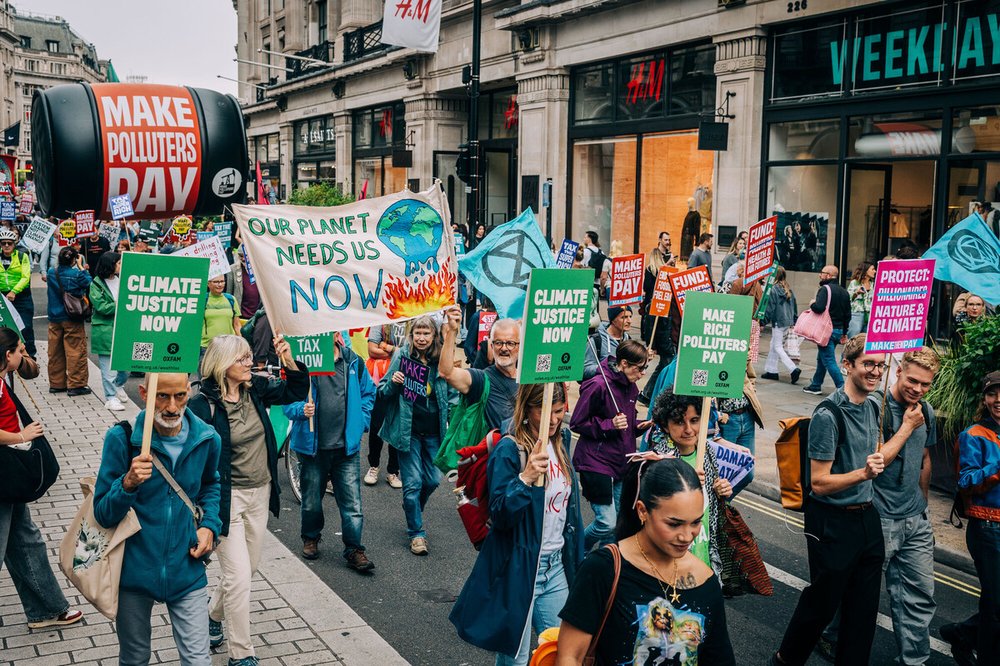
What are the causes of inequality?
Carbon inequality is massive
Oxfam research in 2024 found that fifty of the world’s richest billionaires produce on average more carbon through their investments, private jets and superyachts in under three hours than the average Brit does in their entire lifetime.
Meet Hilda Flavia Nakabuye
Hilda Flavia Nakabuye, a climate activist in Uganda, describes the work she is doing to reset the imbalance between the carbon emissions of Ugandan people and the extent they are hit by climate change.
Staff from Oxfam in the Netherlands (Oxfam Novib) marching in Pride Walk Amsterdam in 2021. Credit: Bas Geerdink/Oxfam

Which countries are most impacted by inequalities?
Picketers outside Matroosberg Farm in De Doorns, demanding that workers be paid on time every fortnight. Photo credit: Alexa Sedgwick/Oxfam
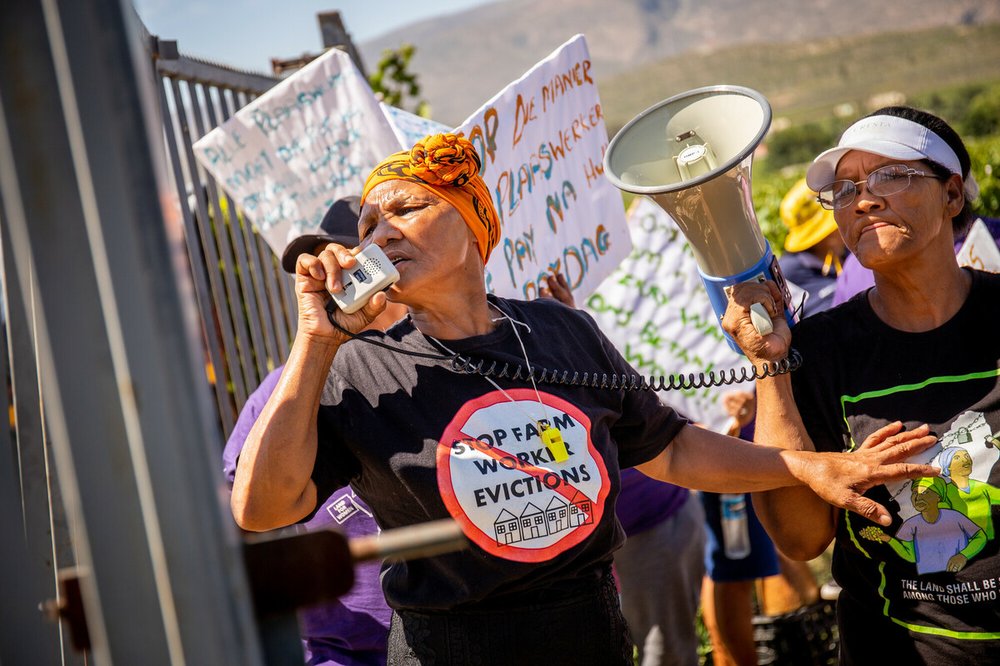
In Colombia’s port of Buenaventura, armed groups vie for power at the expense of residents. Oxfam partners with Ambulua, which helps women and girls build a safer city. Ambulua director Aura Dalia Caice stands in the port. Credit: Elizabeth Stevens/Oxfam
Oxfam and Ambulua
In the port of Buenaventura in Colombia, armed groups vie for power and territory at the expense of city residents.
Oxfam has partnered with Ambulua, an organisation that helps women and girls to build a safer city. Here, Ambulua director Aura Dalia Caicedo stands in front of the port.
How is Oxfam helping to tackle inequality worldwide?
Oxfam staff visit Downing Street, the home of the UK Prime Minister, to deliver a petition with thousands of names from people asking that rich polluters should pay their share towards addressing the climate crisis. Credit: Andy Aitchison/Oxfam
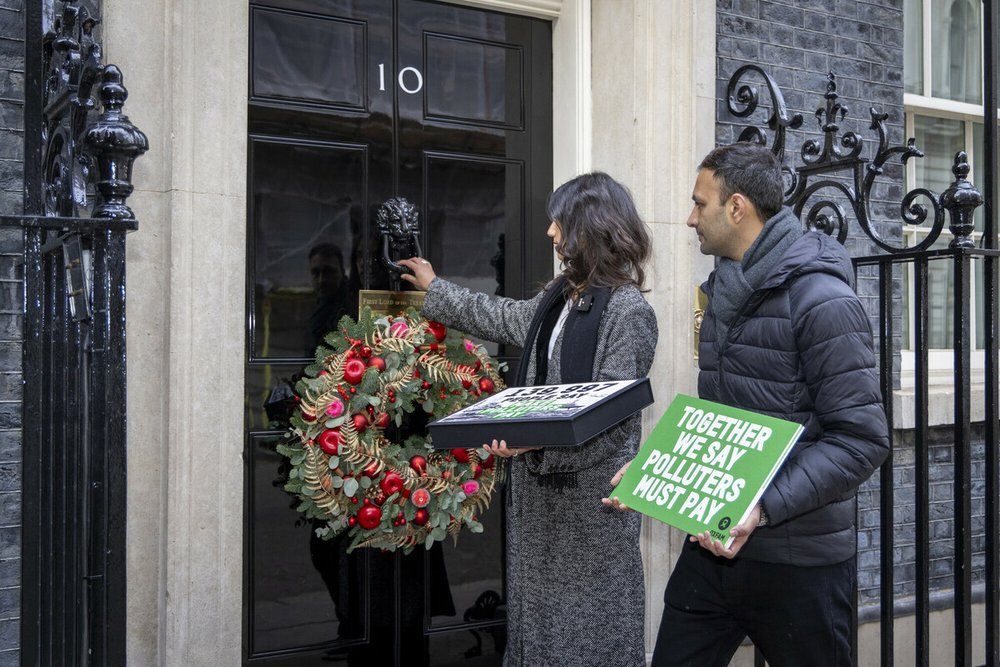
Oxfam Australia and Family for Change
Oxfam Australia and Family for Change's #EnoughNow initiative focused on addressing violence and encouraging behaviour change within families in Papua New Guinea, led by the community development committee's commitment to healing and rehabilitation.
Oxfam is proudly supported by the Australian Government through the Australian NGO Cooperation Program (ANCP)
